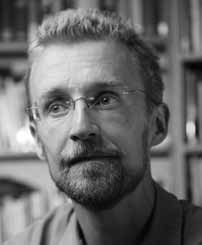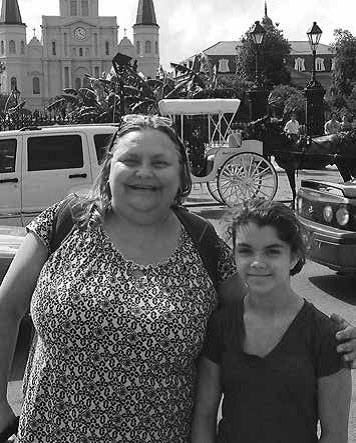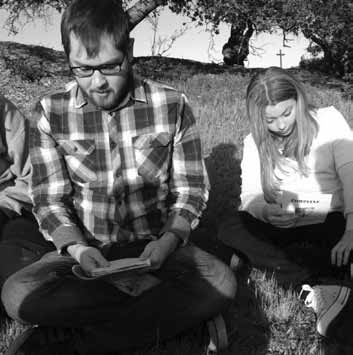Engaging doubt with youthSeminary looks at opportunities in challenging youth ministryPosted Apr 15, 2013 |
|

Many people who work with youth and young adults say that engaging young people in conversations about their doubts is a proven route for teaching the critical thinking skills essential for adult faith. Photo/CDSP
[Church Divinity School of the Pacific] With the economy remaining fragile and church budgets strained, it can be difficult to make a case for investing in youth ministry. Sound investing is supposed to be geared toward the future, and many believe that youth are the future of the church.
But some church leaders looking at the cost side of the ledger only see diminishing returns. It is not simply that there appear to be fewer adolescents and teens in churches.
Evidence-based studies suggest that investing resources into cultivating faith in young people is not paying off. By 2010, Ranier Research was reporting that 70 percent of youth leave church by the time they’re 22. The next year, the Barna Group estimated that 80 percent of young people raised in the church would be “disengaged” by age 29.
There are sociological explanations for why young people aren’t lining up in adulthood to participate in organized religion. These days, the church has to compete for attention against the lure of social media and the busy schedules of the college-bound.
What’s most worrisome, though, is how the politicization of religion has caused many youth to regard faith with suspicion. Perhaps as a result, according to a 2012 Pew Research Center report, a greater number of young people are expressing doubts about the existence of God than at any time since the organization began taking surveys on the subject more than a decade ago. Thirty-one percent disagreed with the statement “I never doubt the existence of God,” twice the number that disagreed in 2007.
Responding to discouraging reports, some church leaders recommend paring down youth investments. Other church leaders think like contrarian investor Warren Buffet. He puts his money into stocks that may be undervalued by a majority of investors.
It might be said that speaker Andrew Zirschky has contrarian views about youth investment. The academic director of the Center for Youth Ministry Training in Brentwood, Tennessee, he holds a master of divinity degree from Princeton Theological Seminary and has worked as a youth and college minister at churches in Idaho, Pennsylvania and New Jersey.
Like others in his field, Zirschky doesn’t focus on youth as the future of the church but as the present and as well deserving of investment. Rather than responding by shutting down challenging questions, or offering verbal pats on the back, he recommends encouraging youth to express their doubts and then share them with the congregation for a robust conversation.
Zirschky led an April 13 symposium at the Church Divinity School of the Pacific in Berkeley, California, that was co-sponsored by the Diocese of California and was open to church and youth leaders, parent, and seminarians. The title of his presentation was “Engaging Doubt with Youth – Growing in Faith through Questioning and Challenge.”
The Very Rev. W. Mark Richardson, dean and president of CDSP, initiated the symposium because he wants the school to become a hub where youth leaders may convene regularly. CDSP’s history as a founding member of the Graduate Theological Union, a major center of interreligious studies, makes the institution unique among other Episcopal seminaries, Richardson says. “We are located in one of the greatest urban university environments in the world. Our context offers opportunities for interactions with people from many denominations and religions.
“Just as importantly, our school is recognized for being strong in ministry development, which involves the education and formation of leaders who will not only serve as professional ministers in the church and the world (either lay or ordained), but also empower and enable the ministries of all baptized people in their daily life as disciples of Jesus Christ.
“We also have the capacity to place seminarians interested in working with young people and wanting to know how to support discussions related to real-world experiences into churches that have dynamic youth ministry mentors.”
As to CDSP’s symposium focusing on adolescent doubt, Richardson says, “The Episcopal Church is a place where serious spiritual quest makes room for doubt. Compassionate and trusting relationships are key for those asking big questions. Doubt is an aspect of our lives, no matter our age.”
He recalled a story from the Rev. Mary Hudak, associate rector of St. Stephen’s Episcopal Church in nearby Orinda and recently called to be rector of St. Michael’s in Carmichael, California. When one of Mary’s sons was 4, she said that he woke up saying, “Mom, I’m so worried! I don’t believe enough.” She explained that if he was losing sleep over this, he believed enough.
“Young people didn’t invent doubt,” Richardson says, “but we know that as they reach adolescence they’re more highly motivated than others to look for ways to be in trusting communities where people can explore their faith in spite of their doubt.”
Youth leader reflect on how adults reacted to their doubts as adolescents
Engaging young people in conversations about their doubts is a proven route for teaching the critical thinking skills essential for adult faith. And yet a number of youth leaders recalled experiences that left them feeling alienated and unable to share their most challenging thoughts.
As a teen in Oakland, Kellor Smith says she didn’t doubt her faith as much as she did the leaders of the church she was attending. “They were always talking to us about sin. I hated listening to that.”
Finally, she came up with an idea about starting a youth group. “I was excited about going to the pastor with this idea, until a church official explained that I couldn’t present my idea to him because I was a woman.”
Eager to get along with others in the community, Smith tolerated the indignity.
“Eventually, I began telling adults of my interest in pursuing a career in communication. They were eager to help, but they only referred me to people within their Christian networks. This kind of narrow-mindedness eventually drove me off.”
Smith remained wary of the church. By the 1970s, she learned of St. John’s Episcopal Church in Oakland from her mother, Nancy Baker, who was attending a morning service there. Smith would ride along with her, so she would later be dropped off at Skyline High. Later, when attending Mills College, Smith dropped by St. John’s to say hello and agreed to join the choir. “This became my social community,” she says.
The comfort she felt talking with new friends about real-world experiences and decision-making as a person of faith led her to join the parish. She later became its youth director.
CDSP honored Smith for her ministry at a reception after the April 13 symposium and has created and is raising money for a scholarship for youth ministry in her name.
Religious doubt during adolescence caused hardship for Daniel London. He is now a doctoral student at the Graduate Theological Union and the leader of the Marin Episcopal Youth Group, a collaborative representing five churches: Church of the Nativity (San Rafael), Christ Church (Sausalito), Church of the Redeemer (San Rafael), St. Paul’s (San Rafael) and St. Francis (Novato).
London and his family, regular churchgoers, relocated from California to Ithaca, New York, about the same time that he and an older brother began rebelling against religious teachings by experimenting with marijuana and committing petty crimes.
The two eventually straightened up and returned to the church, practically becoming zealots. “I got really immersed into a religious subculture, and even stopped listening to music that wasn’t certified by the church,” says London.
He also struggled to figure out how to start dating within church-imposed restraints. The lifestyle restrictions he learned to cope with, but restrictive thinking was something else entirely.
“There were certain ways of thinking and questions that were rejected,” he says. “There was so much I could not do that life became miserable for me. I felt I was going to suffocate.”
Returning to California for college, he happened upon All Saints Episcopal Church in Pasadena. While talking to congregants, “My understanding of Christianity got so much bigger.”
Today, London is looking forward to his upcoming ordination in the Diocese of Los Angeles. While he enjoys encouraging youth group participants to share their views about faith, he avoids preaching at them by adhering to the instruction from Saint Francis to: “Preach the gospel at all times and when necessary use words.”
London says he wants to teach young people how to encounter Christ in unlikely places, whether volunteering for the homeless in Marin, assisting in the Hurricane Sandy relief effort or providing stuffed animals for orphans in Vietnam.
Jeffrey Dodge also looks back on a turbulent period during his adolescence when he “dared” to express doubt in church teachings. Currently a second-year CDSP seminarian discerning whether he has been called into youth ministry, he says that at the church in Murfreesboro, Tennessee, that he and his family attended, he used to pepper Sunday school teachers with questions that drew frowns. “I wondered why a loving God would condemn people to hell even if they had never heard of Christianity.”
A convert to the Episcopal Church, Dodge says he is so appalled at Christianity’s tarnished image – because of polemic language from the right and the left — that he feels the need to evangelize.
“When I converse with young people, I say that I’m Christian and add, ‘Before you run away, I want you to know that science informs Episcopalians about how the world works, while the Spirit informs us about how the world connects. Church is about community, not ideology. You don’t have to be a Christian to find God. And if I invite you to join the Episcopal Church, it’s an invitation, not a requirement.’”
The Rev. Martin Elfert grew up distanced from the religious divide. He was raised in the resolutely secular context of Vancouver, Canada, with a family that did not attend church. It wasn’t until he and his wife, Phoebe, had the first of their three children that Elfert began to wonder if church could help him respond to God.

The Rev. Martin Elfert says he is is impressed with the thoughtful questions he gets from young people because, unlike adults, they have not yet learned to self-censor. Photo/CDSP
“The Celts wrote about ‘thin places.’ We may also speak of ‘thin experiences’ in which you can almost reach out and touch God’s face,” he says. “When I first became a father I had a deep understanding of the love out of which our son was born.”
Elfert turned for direction from his father-in-law, an Anglican priest, and the community of Christ Church Cathedral, Vancouver, which ultimately encouraged him to seek ordination. Today he participates in ministry for and with children and youth at the Cathedral of St. John the Evangelist in Spokane, Washington.
Elfert says he is impressed with the thoughtful questions he gets from young people because, unlike adults, they have not yet learned to self-censor. Every January, he assists as a chaplain for Teens Encountering Christ, a three-day program in which 50 young people prepare worship, give homilies and share stories of faith.
Elizabeth Clayton, a former youth group member who works as a wedding planner, tells of an experience that strengthened her faith. After moving to Oakland from Europe and joining the St. John’s youth group in 1999, “We took a mission trip to Idaho that was led by Kellor [Smith] and [the Rev.] Scott [Denman, rector]. We were joined by other youth groups from various denominations.”
Clayton was glad that the different groups were getting along, until she learned that some of the others were outraged because St. John’s welcomes everyone, including those from the LGBT community, and invites women to serve as priests. Viewing the St. John’s group members as sinners and fearing that they would be sent to hell, the others had begun praying for their souls.
Clayton was upset until Denman and Smith explained that the other groups had the right to believe as they did. “That’s when I realized that not all churches are as accepting and open as ours. I felt lucky to belong to a group that met me where I was, and that I was also being taught to be more accepting of others. The experience strengthened my faith.”
For the past three years, Clayton has served on the St. John’s vestry.
Why youth programs are good investments
Like many youth leaders, Smith points out that the most practical aspect of an active youth group is its role in building congregations. St. John’s has about 600 congregants, including a revolving youth group of about 30 young adults that attracts parents, siblings and extended-family members.
Acknowledging the congregational building aspect of youth groups, the Rev. Stephen McHale, associate rector of faith formation at the Episcopal Church of the Resurrection in Pleasant Hill, California, paraphrases a line from Mark Devries’ Sustainable Youth Ministry: Why Youth Ministry Doesn’t Last and What Your Church Can Do About It: “The job of the youth minister is to be the architect of a constellation of relationships in the church.”
Rather than being an individual contributor working independently with young people, he says, “A youth leader actually works to empower lay leadership.”
Betty Kasson of Carmel Valley agrees that youth groups are a key to vital congregations. But this trustee of All Saints Day School and member of St. Dunstan’s Episcopal Church also learned from raising two sons that youth leaders play another essential role.
“More than anything else, adolescents care about relationships,” she says. “When your children need to turn to someone outside the family for advice, ask yourself: Do you want them to turn solely to their peers, or should they also have someone who relates to them and shares the spiritual values of your congregation?”
Denman adds that, along with not treating youth programs as an isolated category, church leaders should encourage a culture of youthful energy and playfulness among the entire congregation.
“We all have that youthful energy and vision even in our later years. Some of us wear disguises, but underneath those wrinkles are playful children,” he says. “People want to be youthful and, as Jesus said, we have to become like a child to enter the kingdom.
“I wonder sometimes if we too often wait for youth to arrive at a church before we start to offer youthful energy and ideas. Why don’t we just start by offering to everyone some playful, accessible, fun programs that inspire the child within, and just see what happens?”
What youth leaders say about how they are perceived
Elfert says he was drawn to the cathedral job in Spokane by the high value that St. John’s places on children and youth ministries. He realized that not all churches attached the same importance to youth ministry.
“One of the church’s greatest sins is making youth ministry an entry-level position,” he says. “Too many consider it a job that you perform until you’re good enough to become a rector.”
The Rev. Philip Brochard, rector of All Souls Parish in Berkeley, which has invested in building a community of young people, says that across the denominational spectrum youth ministry is often so devalued that it’s difficult to find people willing to make a career out of the vocation. “I think a lot of churches want to see an immediate effect, and that’s not going to happen with youth groups.”
Some youth leaders confide that they are expected to create nearly miraculous results in under-funded, poorly supported positions. There is such frequent turnover in youth director positions, for which college degrees are required, that staffers often stay for one year or less, Brochard says. This phenomenon is referred to as “one and done.”
Cait Black, youth minister at Trinity Episcopal Church in Menlo Park, California, was surprised to see similar scenarios occurring in the Deep South and among wealthier congregations. “The first thing to go from stressed church budgets is the full-time youth minister.”
Her job at Trinity came complete with housing, but she points out that her situation is an anomaly. Grateful for Trinity’s support and enthusiasm for youth, she adds that in many high-cost-of-living areas, churches often offer part-time work without benefits.
Ed Horsley, a youth worker assisting Black at Trinity while searching for a job, says he finds that many Episcopal churches work on the old assumption that, “even if the young people lose interest in church, they’ll come back, when they have families of their own.”
This is a myth that too many in the Episcopal Church seem to hold onto, according to the Rev. Dr. Susanna Singer, CDSP associate professor of ministry development. She explains that, by and large, young people are not returning to the church in adulthood, with or without their children.
“It’s as if the church hasn’t caught up to this reality yet,” she says. “There is no cultural pressure to go to church and certainly no denominational loyalty. And there isn’t enough investment. Christian formation these days requires something different from 50 years ago, when there was still a broader Christian culture with communities supportive of church and other religious practices.”
Her point is underscored by a story the retired Diocese of California Bishop William E. Swing shares about his World War II-era youth in West Virginia. “My friends and I were playing football on a vacant lot that we didn’t know was owned by an Episcopal Church. It was raining and snowing. The priest said, ‘Come on in out of the mud, we’ve got a ping pong table.’ We went in, and a few weeks later, the priest was looking for acolytes. He said, ‘Who in here likes to wear uniforms and light candles?’ I raised my hand, and next thing I knew I was bishop of California.”
The difference today, Singer says, is that for young people to become mature Christians, they need more deliberate formation from the church. She refers to theologian John Westerhoff’s theory that this cultural shift requires a move from acquired faith to owned faith.
“We’ve got to be intentional about faith formation in the teen years, and that requires money and taking the problem seriously,” she says. “Doubt is what young people need to grapple with, but not in isolation. Then they can make their beliefs their own.”
Read more about it
What can cash-strapped churches do?
Some examples of effective youth ministry
Brenda Lane Richardson, an author and clinical social worker, uses memoir writing as a therapeutic modality. Her most recent work, “You Should Really Write a Book,” was published by St. Martin’s Press in 2012. She is married to CDSP’s dean and president, the Rev. W. Mark Richardson, PhD. This article first appeared in the Spring 2013 issue of Crossings, an alumni publication of the Church Divinity School of the Pacific.



Social Menu